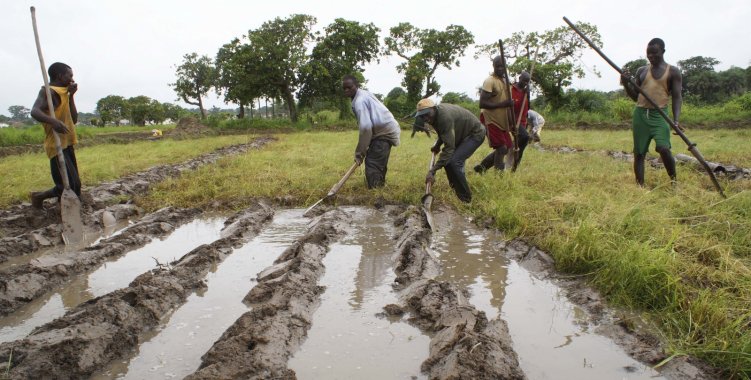The results of the 2020/2021 agricultural campaign and the objectives for the next 2023/2024 campaign were released this Monday in a meeting with journalists, where the constraints that the country faces in this sector, which is heavily dependent on imports, were also discussed.
Speaking to Lusa, the Minister of Agriculture and Forestry, António Francisco de Assis, said that Angola spends, every ten months, 250 million dollars on importing rice, at a time when there is a shortage of foreign exchange.
Angolans consume 500 thousand tons of rice per year, but produced less than 11 thousand tons in the 2021/2022 agricultural campaign, although, according to the minister, there is production capacity for this cereal in all provinces.
António Francisco de Assis stated that the habit of eating rice began at the time of the war (which lasted between 1975 and 2002), due to humanitarian aid, and gradually progressed, especially among younger and urban groups.
"The new generation grew up with rice. Therefore, our objective is to produce it ourselves", he declared.
In Angola, the consumption of cassava flour (used in the preparation of funge) is predominant in the north, while in the south more corn flour and other cereals such as massango and massambala are consumed.
Between 2018 and 2022, Angola imported 12 billion dollars of food, that is, around 2.3 billion dollars per year, a value that contrasts with the expense of 991 million dollars that the country spent to produce in this year. period (an average of around 190 million dollars/year), indicated the national director of Forests, Domingos Nazaré.
A trajectory that the executive wants to reverse, having allocated the largest share ever to the sector for the Ministry of Agriculture and Forestry in the next General State Budget for 2024, which foresees an 80 percent increase in spending on this department.
"This sector is fundamental for economic and social development", highlighted the portfolio holder, adding that Angola is moving from an economy totally dependent on oil and diamonds to a more diversified economy.
"Angola is an essentially agricultural country, we have arable land, but we have very specific needs that we are still far from satisfying," he said.
António Francisco Assis highlighted that, although access to credit and land law are normally highlighted as the main problems of agriculture in Angola, there are other fundamental elements to obtain results, such as human capital, market organization and logistics.
"All the logistics for farming in Angola are imported and are subject to shocks that occur in the world economy", highlighted the minister, remembering that practically the only source of currency is oil.
Other constraints to the development of the sector, identified by the National Director of Forests, relate to the production of seeds, mostly imported from Zambia and Zimbabwe, and fertilizers.







